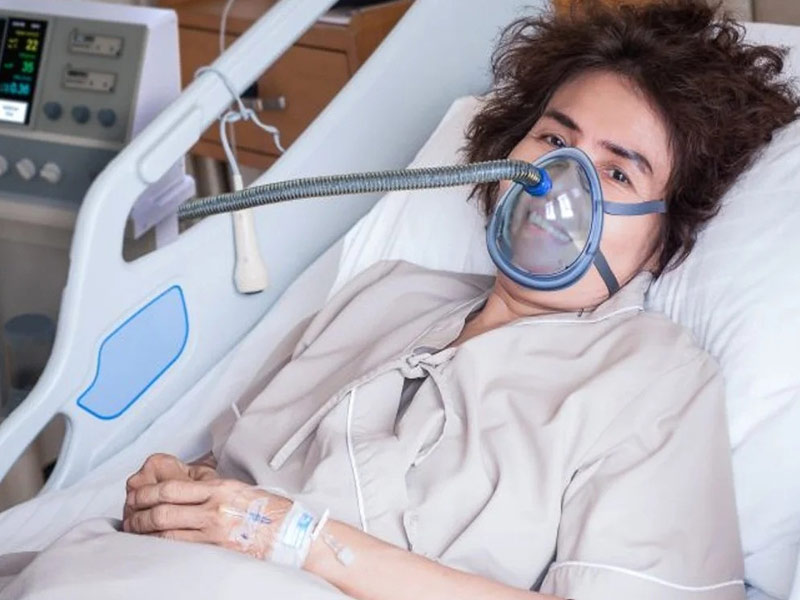
The second wave of Coronavirus saw a steep increase in the number of people getting hospitalised for severe disease including young people. A lot of them were diagnosed with Covid-19 pneumonia and respiratory failure. The first wave was comparatively milder in India with elderly or people with co-morbidities developing severe complications. While daily Covid cases across India are coming down, one must not grow complacent and be mentally prepared and aware to tackle the third wave right.
Table of Content:-
Dr. Prasan Prabhakar, Cardiologist, Chairman, Laxmi Hospitals, Kochi explains at what stage things may go downhill for Covid patients and they might need hospitalization.
Also Read: Covid-19 And Lung Cancer: Know The Differences And Similarities In Symptoms
Why First week Is Relatively Safe
Covid-19 may start out as any other viral infection and in the first week you may get fever with myalgia, fever, sore throat, loss of taste and smell among other symptoms.
While looking at these symptoms in first week, many patients may feel they would get better without any serious complications. But being in constant touch with your doctor is very crucial as there are several markers that need to be tested in the first few days and then repeated at a later stage.
The Troublesome Second Week
Dr. Prabhakar says post contracting Covid-19, 80-90% of the patients sail through and would not develop severe disease. However, for the remaining 10% or so, there is a risk of hospitalization after developing serious Covid complications.
Also Read: Post Covid Syndrome In Children On Rise Post Second Wave. Know The Symptoms By Paediatrician
How This Happens
In the second week, some of the people will develop cytokine storm. When the virus affects endothelium, which is basically the covering inthe vessel in artery, it is damaged, and the body starts to consider its own tissues not as its tissues so the immune system gets confused and starts releasing anti-bodies in a cytokine storm. Initially there is a shower and then there is a storm where rush of anti-bodies is produced and there is an antigen antibody reaction. The main target involvement is lungs and the blood vessels.
"That is why we give steroids and other immunosuppressants to prevent this, and anticoagulants to prevent the clot formation in the blood vessels. This is how it is treated at an early stage before it gets severe," says Dr. Prabhakar.

Top Warning Signs That Indicate You May Need Hospitalization
According to Dr. Prabhakar, there are some warning signs that patients must not ignore.
Second spike of fever especially after the fifth day: Covid-19 starts with a fever for many people but one must consult a doctor immediately if the high-grade fever returns.
Fever continuing into second week: If the fever does not settle right from Day 1 and continues well into the second week.
Any worsening nature of cough: If in the second week, coughing is intensified, it's a sign that things may get downhill if appropriate action is not taken.
Shortness of breath: If one cannot breathe properly while doing smallest of activities, they must take it seriously. Oxygen saturation must be checked at regular intervals and if it continues to remain low, there may be a need of immediate hospitalization.

Confusion: Covid-19 main affect brain and the nervous system. If a patient experiences delirium, confusion, has difficulty speaking clearly, there is a need for immediate attention.
Chest pain: The virus also affects your lungs and if there is any discomfort around the area, then you must see doctor's help.
A patient must be in constant touch with the doctor from the onset of the disease, recovery, to post Covid. There are certain markers for the disease that must be tested from time to time to avoid long-term troubles like blood clotting or cardiac arrest.
Read More Articles On Other Diseases
Also watch this video
How we keep this article up to date:
We work with experts and keep a close eye on the latest in health and wellness. Whenever there is a new research or helpful information, we update our articles with accurate and useful advice.
Current Version